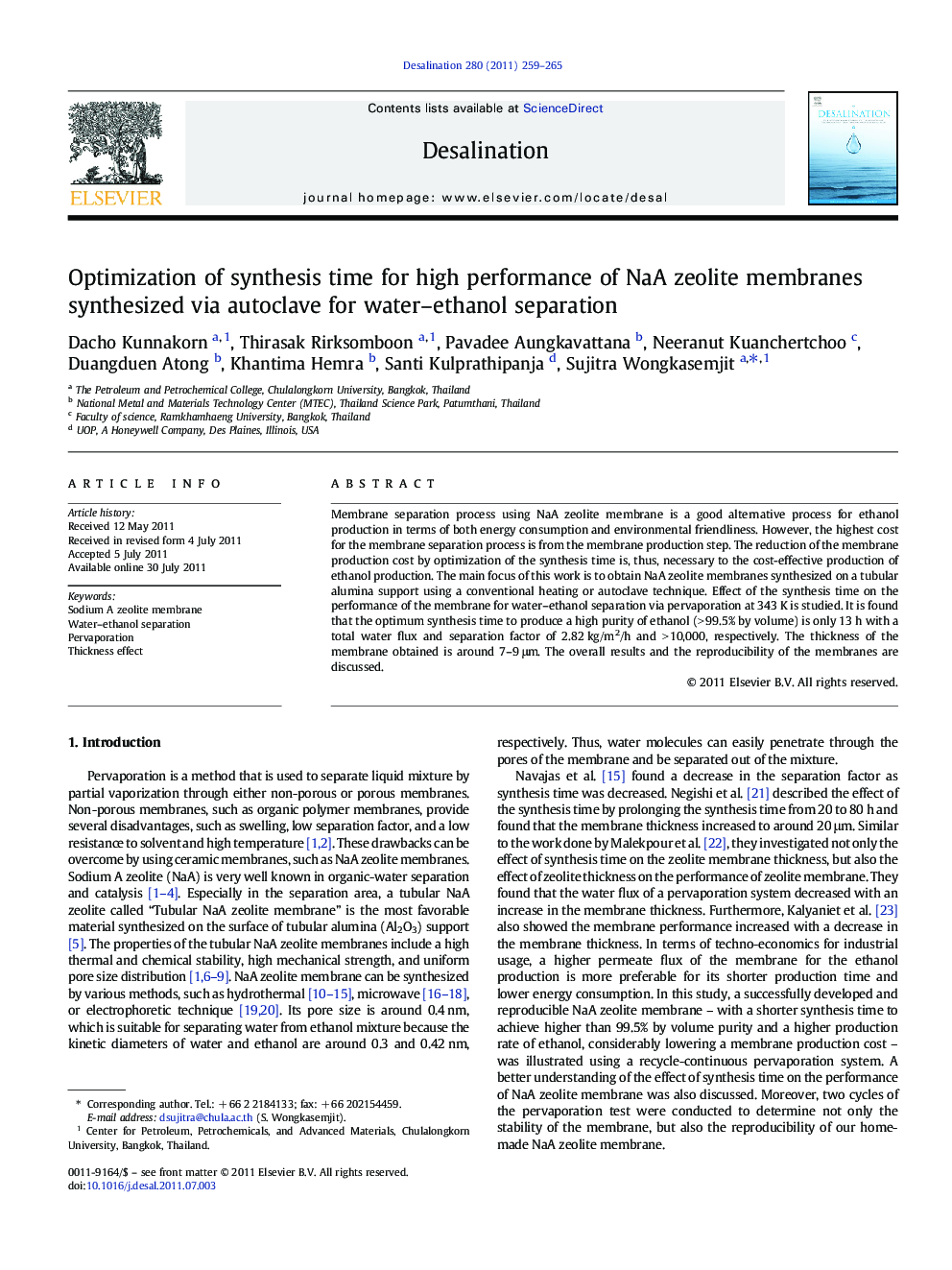| Article ID | Journal | Published Year | Pages | File Type |
|---|---|---|---|---|
| 624625 | Desalination | 2011 | 7 Pages |
Membrane separation process using NaA zeolite membrane is a good alternative process for ethanol production in terms of both energy consumption and environmental friendliness. However, the highest cost for the membrane separation process is from the membrane production step. The reduction of the membrane production cost by optimization of the synthesis time is, thus, necessary to the cost-effective production of ethanol production. The main focus of this work is to obtain NaA zeolite membranes synthesized on a tubular alumina support using a conventional heating or autoclave technique. Effect of the synthesis time on the performance of the membrane for water–ethanol separation via pervaporation at 343 K is studied. It is found that the optimum synthesis time to produce a high purity of ethanol (> 99.5% by volume) is only 13 h with a total water flux and separation factor of 2.82 kg/m2/h and > 10,000, respectively. The thickness of the membrane obtained is around 7–9 μm. The overall results and the reproducibility of the membranes are discussed.
► The optimum synthesis time to produce high purity of ethanol (> 99.5% by volume) was only 13 h. ► The membrane with around 7–9 μm thickness showed a very good performance. ► A total water flux of 2.82 kg/m2/h and a separation factor > 10,000 were obtained.
